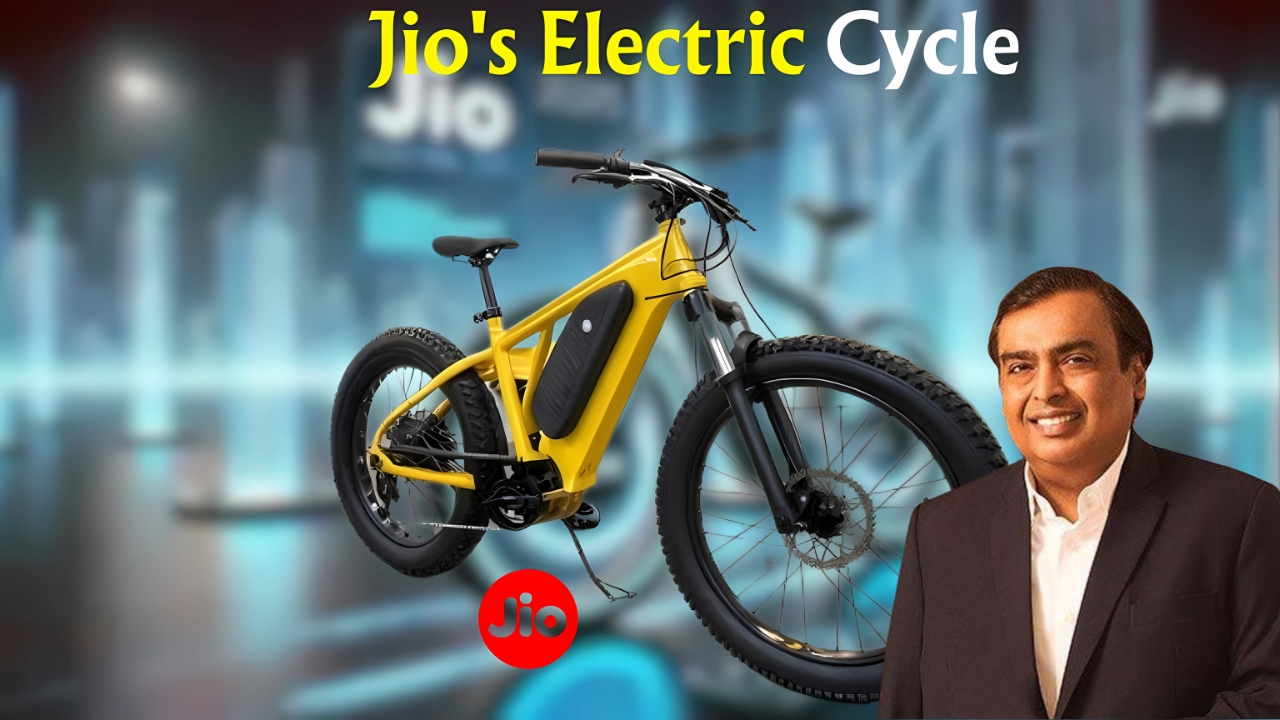Jio’s Revolutionary E-Cycle: The global electric mobility landscape is witnessing unprecedented disruption, and India’s telecom giant Reliance Jio is positioning itself to become a major player in this transformation. Reports suggest that Jio’s upcoming e-bicycle will be priced at ₹29,999 to ₹35,000, with rumors of an ambitious 400 km range that could revolutionize urban commuting. For Australian observers of the global e-mobility market, this development represents a fascinating case study in how emerging economies might leapfrog traditional transportation paradigms.
Understanding Jio’s Strategic E-Mobility Vision
To truly grasp the significance of Jio’s entry into electric bicycles, we need to understand the company’s track record of market disruption. Just as Jio revolutionized India’s telecommunications sector by offering affordable 4G services, the company now appears ready to apply the same philosophy to sustainable transportation. This approach mirrors strategies we’ve seen successful companies employ globally, including in Australia’s own e-mobility sector.
The anticipated Jio Electric Bicycle will compete with well-established players like Hero Lectro, EMotorad, and Nexzu, but with a crucial difference: integration with Jio’s existing digital ecosystem. This represents a fundamentally different approach compared to traditional bicycle manufacturers who focus solely on mechanical engineering.
The Technology Behind the Bold Claims
The most striking aspect of Jio’s rumored specifications is the claimed 400-kilometer range. To put this in perspective, let’s examine what this would mean from a technical standpoint. Most electric bicycles in this price range offer a range of 50-100 km per charge, making 400 km an ambitious target that would require advanced battery technology and cost-efficiency.
For comparison, premium e-bikes in the Australian market typically offer ranges between 50-120 kilometers, with prices often exceeding AUD $3,000. If Jio achieves even half of their claimed range at their target price point (approximately AUD $550), it would represent a significant technological breakthrough.
Smart Integration Features
Unlike basic LCD displays found on traditional e-bikes, the Jio Electric Bicycle is expected to feature IoT connectivity, GPS tracking, and 5G integration. This smart integration approach reflects broader global trends toward connected mobility solutions.
The planned features include:
- Digital instrument cluster with real-time performance monitoring
- GPS tracking for navigation and anti-theft protection
- Bluetooth connectivity for smartphone integration
- Auto-lock functionality providing enhanced security
- Regenerative braking system to extend battery life
Market Disruption Potential and Global Implications
Pricing Strategy Analysis
The Jio Electric Bicycle is expected to be priced between ₹29,999 and ₹50,000, with multiple variants offering different battery capacities and features. This pricing strategy follows Jio’s established pattern of entering markets with aggressive pricing to capture significant market share rapidly.
From a global perspective, this pricing approach could force established e-bike manufacturers worldwide to reconsider their cost structures. Australian e-bike companies, which often compete on premium features and build quality, may need to adapt their strategies if similar ultra-affordable options become available in international markets.
Technical Feasibility Concerns
Industry experts have expressed skepticism about the feasibility of achieving a 400-kilometer range at such a low price point. Current technology makes such specifications unlikely without significant breakthroughs in battery efficiency or substantial subsidies. This raises important questions about the sustainability of such ambitious claims.
The technical challenges include:
- Battery energy density requirements for extended range
- Weight management to maintain bicycle practicality
- Charging infrastructure development for widespread adoption
- Cost optimization without compromising safety or reliability
Global E-Mobility Context and Australian Parallels
Learning from International Trends
Australia’s e-mobility sector has experienced steady growth, with increasing consumer adoption driven by environmental consciousness and urban congestion concerns. The potential success of Jio’s approach in India offers valuable insights for Australian market participants.
The system’s reliance on network coverage might limit full functionality in areas with poor signal strength, while battery-powered smart features could reduce overall range when active. These considerations are particularly relevant for Australia’s vast geography and variable network coverage in rural areas.
Ecosystem Integration Advantages
The electric bicycle connects with Jio’s smart city infrastructure, offering access to digital payment systems, entertainment services, and connected mobility solutions. This integrated approach demonstrates how technology companies can leverage existing digital ecosystems to create competitive advantages in new markets.
Australian companies could learn from this model by considering how existing digital services might be integrated with e-mobility solutions to create enhanced user experiences and stronger market positions.
Expected Timeline and Market Launch
Launch Predictions and Market Readiness
While official confirmation is awaited, industry experts speculate a Q4 2025 launch, with the bicycle anticipated to be launched in India in the second half of the year. This timeline allows for additional development and testing to address technical challenges.
The planned rollout strategy appears to focus initially on urban markets where charging infrastructure and network connectivity are most developed. This approach mirrors successful e-mobility launches in other markets, including Australia’s major cities.
Global Market Impact Considerations
If successful, Jio’s e-bicycle could influence global e-mobility trends by demonstrating the viability of ultra-affordable electric transportation with smart features. This could accelerate adoption in developing markets and create competitive pressure in developed economies.
For Australian consumers and businesses, this development signals the increasing democratization of electric mobility technology, potentially leading to more affordable options in the domestic market as global competition intensifies.
Balancing Optimism with Realism
Jio’s rumored electric bicycle with a 400 km range at ₹30,000 has the potential to revolutionize urban commuting, but achieving this would require significant technological breakthroughs. While the specifications appear ambitious, Jio’s track record of market disruption suggests that even if the final product doesn’t meet all rumored specifications, it could still offer a highly competitive electric bicycle.
The global e-mobility sector, including Australia’s growing market, should watch this development carefully. Whether Jio delivers on their ambitious promises or not, their entry into e-bicycles represents the broader trend toward technology-driven disruption in sustainable transportation.
As we await official announcements and real-world testing, the Jio e-bicycle serves as a compelling case study in how established technology companies are reshaping traditional transportation markets through innovative approaches to pricing, features, and ecosystem integration.
Frequently Asked Questions
1. When will the Jio electric bicycle be available globally? Currently planned for Q4 2025 launch in India only, with no confirmed international availability timeline.
2. Is the 400km range claim realistic for this price point? Industry experts express skepticism, as current technology typically delivers 50-100km range in this price category.
3. How does this compare to Australian e-bike options? At approximately AUD $550, it would be significantly cheaper than most Australian e-bikes, which typically cost $2,000-$5,000+.

